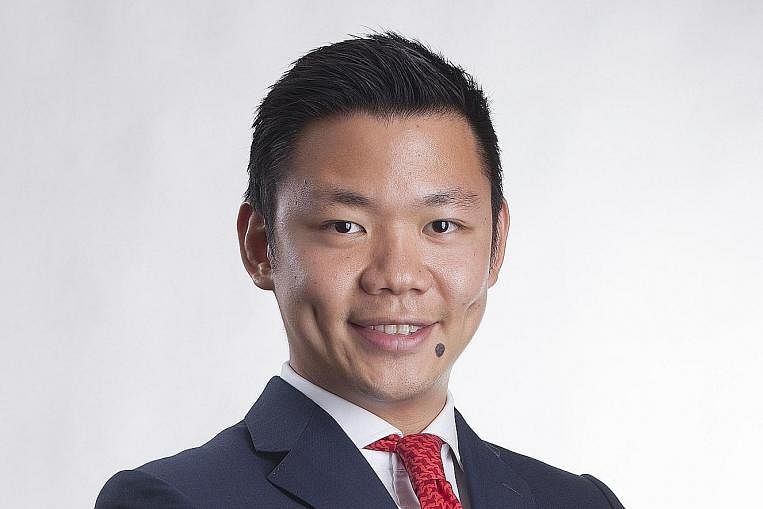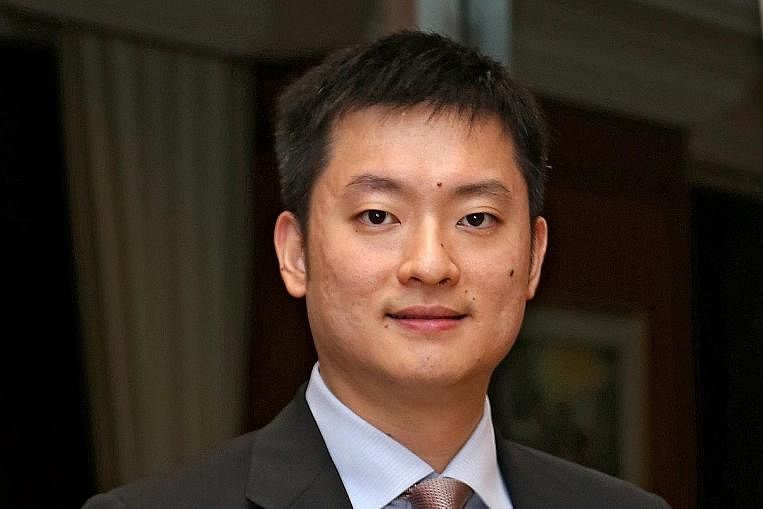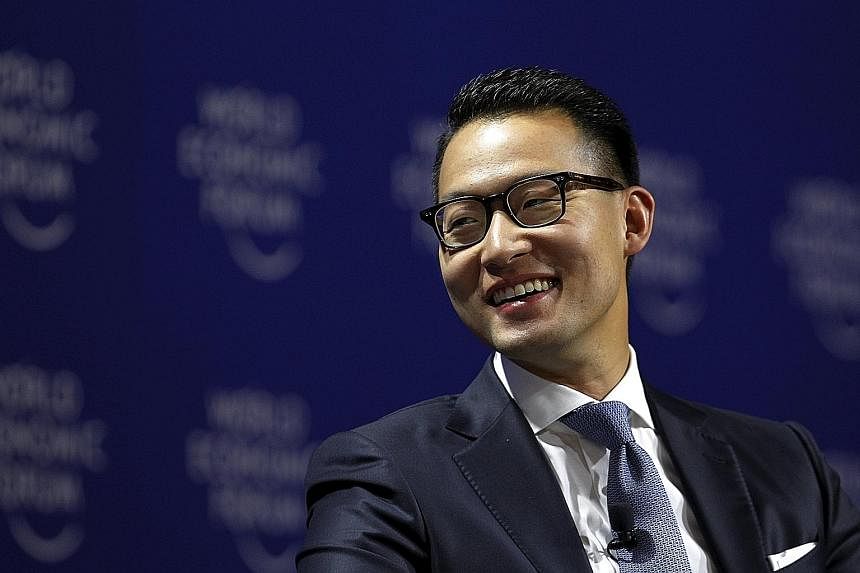Riady to ride wave of digital commerce
An executive director in the Lippo Group, Mr John Riady spearheads the family business' e-commerce drive.
The group, whose chairman is Mr Riady's grandfather Mochtar Riady, has diverse interests in areas such as property, media, hospitals, education, cinemas and now e-commerce, among others. The family's net worth is about US$2.5 billion (S$3.4 billion), according to Forbes.
Mr Riady, 30, is the most visible of the new generation of leaders. He has been editor at large at the Jakarta Globe daily and executive dean at the Lippo-run Pelita Harapan University, and has participated in or was a moderator at events such as the World Economic Forum.
Born in New York, he returned to Indonesia when he was four.
After graduating from Georgetown University with majors in political philosophy and economics, he pursued an MBA at the Wharton School of Business and, later, a law degree at Columbia University.
In February, he fronted the announcement of Lippo's US$500 million investment in e-commerce site MatahariMall, which is touted to become the "Alibaba of Indonesia". Projected online and offline sales are US$25 billion after five years. "Online commerce is a US$100 billion opportunity," Mr Riady said.
Speaking to The Straits Times, he said a digital revolution is about to sweep through all markets and industries in Indonesia.
"We must adapt and change at a faster speed than ever. Existing businesses must strive to pioneer this change or risk being left behind. MatahariMall.com, our e-commerce venture, is one of our major initiatives to dive into this new economy," he added.
Businesses must also think beyond Indonesia, said Mr Riady, whose wife is Singaporean. "Indonesian companies should be looking to export their know-how and expertise to these countries," he said, referring to emerging markets such as Myanmar, Cambodia and Vietnam.
While the Indonesian economy is facing a slowdown, Mr Riady said it is now up to the younger generation to take charge and help steer the country.
"I'm optimistic that in the medium to long term, the economy will rebound... But while I believe in the long-term economic prospects of the country, what keeps me here is the privilege of being able to participate in the development of the community and those around me.
"Economically, there are opportunities everywhere in the world but, for me, being able to do this in Indonesia is special."
Eco push, pulp fiction

When pulp and paper producer Asia Pacific Resources International last month pledged to eliminate deforestation, Mr Anderson Tanoto was the face of the high-profile announcement to diplomats, government officials and green activists.
As the Wharton-educated scion of one of Indonesia's richest families confidently took questions, it was easy to forget he is still not 30.
The 26-year-old, who spent two years in Singapore working for consultancy firm Bain & Company, is the youngest of four children of paper and palm oil tycoon Sukanto Tanoto, whose personal wealth is estimated by Forbes at US$2.7 billion (S$3.6 billion). He returned to Indonesia in 2013 and is tipped to succeed his father in the business.
He is a director at Royal Golden Eagle, the parent company running Asia Pacific Resources, and prefers to live by a mill in Kerinci, in Sumatra's Riau province.
On why he spends most of his time at the mill, he said: "I am committed to learn the business (from the) bottom up."
Insiders say he has ruffled feathers within the firm by pushing for greater environment-friendly practices, pledging to conserve as much land as it has in plantations. During a briefing with journalists, he said such a pledge was "the right thing to do".
And he has said he wants to prioritise transparency in the way the business is managed. He told The Straits Times that because most of the business is done in rural areas, transparency was the only way to show that the company can benefit communities. "(It) is 'out of sight, out of mind' for many stakeholders that we interact with. It is our responsibility to be transparent and communicate what we do on the ground so more people can understand about our business," he said.
For now, the company's harshest critics are willing to give it, and him, a break. Greenpeace suspended its campaign against it, while WWF called it a "big step we need to appreciate". "This is what I call 'from confrontation to collaboration'," he said.
The bachelor says he brings a fresh perspective on tapping technology to improve productivity across plantations and workplace efficiency. "While I may have international education and global exposure, there are still so many new things to learn," he said.
Fired up over coal deal

As the newly crowned president director of Golden Energy and Resources, a subsidiary of the Sinar Mas conglomerate, Mr Fuganto Widjaja is leading the charge to wrest back control of Indonesian assets in a troubled venture.
The 34-year-old is on the verge of achieving the goal, after British financier Nathaniel Rothschild announced he would pull out of a four-year battle over a coal investment in Berau, East Kalimantan.
His tie-up with Indonesia's Bakrie family had turned sour. Early last month, Mr Rothschild said he would sell his stake in Asia Resource Minerals to Asia Coal Energy Ventures, backed by Sinar Mas.
Mr Widjaja's grandfather Eka Tjipta Widjaja, 91, founded a palm oil and mining empire. The family's company, Golden-Agri Resources, is the world's second-largest palm oil producer.
Where past challengers failed to win a majority stake in the coal venture, Mr Widjaja, who was educated at Cambridge and Cornell, had been confident and proven he was no pushover.
"There is no Plan B," he replied when asked about back-up plans.
Indonesian media had painted the battle as one aimed at restoring the investment in a mining venture back into Indonesian hands.
"I don't really look at this as a tussle for the sake of it," he told The Straits Times on the sidelines of a recent press briefing. "I look at it as a business deal and doing what's good for Indonesia."
He began his career as a research analyst with UBS investment bank in Singapore dealing with distressed and high-yield debts.
He told reporters that Sinar Mas' persistence in securing the deal was driven by a chance to support a government target to boost electricity supply to 35,000 megawatts within five years.
"We believe Indonesia needs investment in this sector, and to support this, we need a supply of coal … and this Berau coal (venture) is big," he said.
Mr Widjaja, who plays basketball and guitar, told The Straits Times that a multi-generational family business has a larger purpose than simply monetary gain.
"It's about stewardship and responsibility of guiding a business to provide jobs, investment and value-added products to the country and globally," he said.


